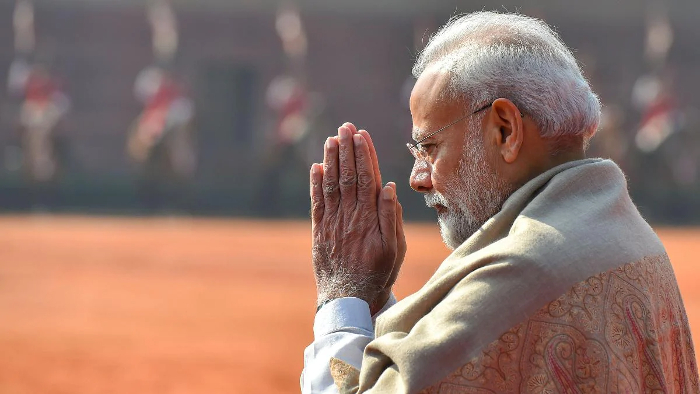
By Krishna Jha
The BJP-RSS government is moving aggressively with its privatization policy. Prime Minister Narendra Modi made it explicit in one of his remarks when he said recently in one of his meetings: ‘Hamare Desh me public sector ka marne ke liye Janma hota hai’ (In our country, public sector is born to perish). It stands in clear contrast to the ideals our Parliament has stood for. Our Constitution is committed towards building a society with socialist principles. Public ownership and the control of commanding heights of the national economy with its strategic sectors were considered imperative to the system we aspired for.
Long years of colonized economy had destroyed the basics and the prime need was to make the recovery fast. It meant that each one of our people was to have access to every opportunity, free from individual domination. It could be possible only in a democracy with social justice. For these endeavours, availability of adequate finance was needed. First to be nationalized was Life Insurance, and then the Imperial Bank of India. Soon were built up other institutions in public sector and major banks were also nationalized. The step was taken to promote the mobility of public money, create an infrastructure in the fields of production, not only for the basic essentials but also those for export.
It was the year of 1969, when the most significant shift came. Fourteen large commercial banks, owned by the monopoly houses, were nationalized. It was also stressed by the government that even after nationalization, the credit needs of the private industry and trade would be met. The unrolling of the nationalization process was to meet the needs of productive sector, especially those in agriculture, in small scale industries, and also for those that were self employed. The nationalized banks were also to sustain the new and growing initiatives, and in the backward and neglected areas in the country. The public ownership was also to help decline the process of spending in the direction of speculative and unproductive areas.
The aim was to remove control of few, extension of credit to priority sectors, giving a professional bent to bank management and encouragement to new classes of such producers and traders. The objective was to blend the capital and people’s skills. It was to help society in its advances. Justice Krishna Iyer had said that the nationalization was aimed at collecting the savings of people and investing it in agrarian sector along with other sections that are in need of support. The purpose was to take each one together and with their skill and capital gathered to move forward. To aid these development projects banks were aimed at higher growth rate and bringing down of the rate of impoverishment.
There was massive expansion in branches, the volume of deposits was also growing, especially in rural areas. Just in two years, growing bank credit was diverted to priority sectors from 14 percent to 41 percent. There was also significant success in removing inequalities. Banking policy was extended to secure progressive reduction in income inequalities. All these policies protected not only the nationalized banking but the entire economy from the Melt Down effects.
Despite these achievements, challenges waited at doorstep through the years. Capitalist system was maturing and giving way to finance capital. Corporate sector was promoted by the system. Welfare of people was no more the task of the government. Various regimes came to power including BJP itself in the beginning of the century. But it was only in 2014, when BJP-RSS government came to rule, the major steps for disinvestment were taken.The government at the Centre managed raise over Rs 4.04 lakh crore through disinvestment and strategic sale of public sector enterprises, according to finance ministry.There were sales in 10 companies, including Air India, that had yielded Rs 69,412 crore to the exchequer in the last eight years. Share buyback in 45 cases fetched Rs 45,104 crore. Dismantling of PSUs has been going on.
When the prime minister spoke about the demise of PSUs, he also meant the crumbling of democratic process in the country, the reason being large scale privatization, a task taken up by the government at the Centre. Public sector is the backbone of the Indian economy and it plays a pivotal role in its development. Its final aim is to socialize the means of production. Striving to achieve certain socio-economic objectives, the primary concern of public sector is to protect the economy which is owned and controlled by the government.
Efforts are also made to provide basic goods and services to the citizens, promote economic development, and protect the interests of weaker sections of society.It has always tried to provide the basic essential services to the citizens. When the nationalization had been initiated, it helped to resolve the issue of unemployment also. It brought in opportunities for employment. Finally, the means for infrastructure is also provided by PSUs to strengthen democracy.
Along with Public Sector, our composite culture, Constitution, and the democratic ethos are also under threat. One example is Manipur, where humanity itself is in flames. Never had India witnessed such barbarity. It is not the issue of SC status, nor is it the tribal conflict. It is only an attempt to side line the major problems, the issues of employment, education, health, finally resources. Also it is an effort to fragment them to keep alive the discontent.(IPA Service)
The post Public Sector Getting Stepmotherly Treatment Under Nine Years Of NDA Rule first appeared on Latest India news, analysis and reports on IPA Newspack.


